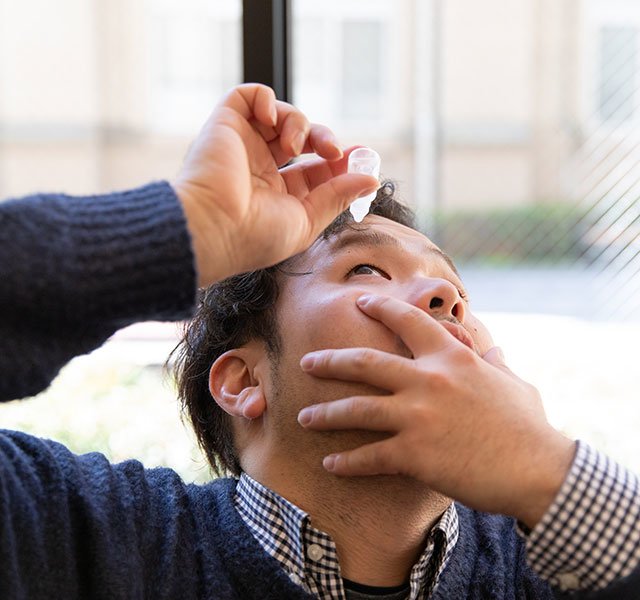Are you suddenly sneezing on a spring day after never having allergies as a child? Have you always loved peanut butter but now break out in hives with even a small taste? According to Rana Misiak, M.D., an allergist at Henry Ford Health, it’s not unusual for adults to develop new allergies.
“Seasonal and food allergies can start and stop at any time during your life,” says Dr. Misiak. “The good news is that there are a variety of effective strategies and treatments to relieve allergy symptoms, allowing you to enjoy your daily activities.”
Here, Dr. Misiak discusses symptoms, diagnostic tests, and treatments for seasonal, environmental and food allergies.
Sneezing? Are Seasonal Allergies The Cause Or Is It Something Else?
Approximately 10-40% of Americans have seasonal allergies or hay fever. These allergies can affect anyone at any time, regardless of age, gender, race or ethnicity. Each time you’re exposed to an allergen, your immune system triggers a cascade of responses. Allergies can interfere with your work, school and other daily activities as you experience symptoms like nasal congestion, sneezing and watery or itchy eyes.
Some common culprits causing seasonal allergies include:
- Grasses
- Pollen
- Trees
- Weeds
If you have allergy symptoms year-round, you could be reacting to environmental allergens such as:
- Dust
- Mold
- Pet dander
Or you may be reacting to an irritant. Irritants can produce allergy-like reactions, but they aren’t allergens. Common irritants include:
- Perfumes or strong scents
- Chilly air
- Changes in weather
- Pollutants
- Smoke
Wondering why you’re reacting to one or more of these allergens or irritants for the first time as an adult? “We don’t always know why these reactions appear. In some cases, we can trace them to a change in your environment,” says Dr. Misiak.
For example, you may have moved to a new area where you’re now exposed to plants and trees you haven’t encountered before. If you’re spending more time working at home during the pandemic, you may have been exposed to dust mites. Maybe you added a furry friend to your family, and you’re now surrounded by pet dander.
How Are Seasonal And Environmental Allergies Diagnosed And Treated?
If your symptoms are affecting your quality of life, Dr. Misiak recommends seeing your physician or an allergist for a full evaluation. Your doctor can identify whether your symptoms are due to seasonal allergies, the flu or a virus like COVID-19.
You may have one of these tests to diagnose seasonal and environmental allergies:
- Scratch test: With this test, a small needle containing a specific allergen scratches the skin of your arm or back. If your skin is red or swollen after 15 to 20 minutes, you’re reacting to that allergen.
- Blood test: This test analyzes a blood sample for the presence of immunoglobulin E (IgE), antibodies linked to specific allergens.
A negative allergy test doesn’t mean there’s nothing you can do about symptoms you might be experiencing, says Dr. Misiak. “Even if you have a normal allergy test, you can use that information to manage your exposure to other factors that may be causing your symptoms. At the same time, you can get back to activities that you stopped for fear of an allergic reaction.”
If you do have seasonal or environmental allergies, manage your symptoms by reducing your exposure to allergens. You can take steps such as:
- Lowering the humidity with a dehumidifier or AC to reduce dust mites in your home
- Planning outdoor activities when pollen counts are lower
- Using an air purifier to reduce pet dander
- Washing clothes and showering after being outside
If you still aren’t finding relief, medications can help. Over-the-counter antihistamines can work within hours while steroid nasal sprays provide relief in a few days. Prescription allergy shots can help gradually build your immunity to specific allergens. To begin, shots are usually given weekly. Eventually, you can scale back to monthly doses for a few years to maintain your immunity.
Not sure what’s right for you? Your physician can help you find a treatment plan to meet your specific needs.
Can’t Eat Your Favorite Food? Is It A Food Allergy?
Just like seasonal allergies, food allergies can appear at any time. Many kids develop food allergies young but can potentially outgrow them over time. But if you develop a food allergy as an adult, it is unlikely that it will disappear.
The most common adult-onset food allergies are:
- Fish and shellfish (shrimp and lobster)
- Peanuts
- Tree nuts (almonds, walnuts, pecans and cashews)
Some of the first signs of a food allergy are a swelling of the lips and tongue, itchiness and hives up to an hour after eating a specific food.
Don’t ignore a new reaction to a food you’ve eaten. Make an appointment with your doctor if you have suspicious symptoms after eating. Your doctor can perform blood and skin tests to diagnose or rule out food allergies. They can also help distinguish between a food allergy, food sensitivity and food intolerance.
In severe cases of food allergies, some people are at risk for developing anaphylaxis. This life-threatening condition triggers an immune reaction that dangerously lowers your blood pressure and narrows your airway. Symptoms of anaphylaxis include:
- Difficulty breathing
- Light headedness
- Rapid, weak pulse
People with food allergies are usually prescribed an EpiPen. This device delivers an injection of epinephrine to stop a dangerous immune reaction. You should always carry your EpiPen with you and be sure that friends and family know where it is.
Whether you’re concerned about seasonal, environmental or food allergies, take the necessary steps to improve your health. “Many of my patients are relieved once they have completed allergy testing," says Dr. Misiak. "They’re empowered to take charge of their health and improve the quality of their life.”
To make an appointment with a primary care physician or allergist, call 1-800-436-7936 or visit henryford.com.
Dr. Rana Misiak specializes in caring for patients with seasonal or food-related allergies and asthma. She sees patients at Henry Ford Medical Centers in Dearborn and Novi.



